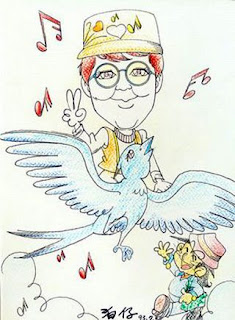Yenlin Ku
In July 2025, the Executive
Yuan held a civil society consultation in preparation for the fifth national
report on the Convention on the Elimination of All Forms of
Discrimination Against Women (CEDAW), due for submission next
year. The terms used in the report expanded beyond women to include gender, transgender women, LGBTI+, plural
genders, sex and gender, gender-friendly, among others. A
notable issue was the lack of definitions for these terms. These concepts and
terms, absent from the original CEDAW, were introduced without explanation of
their relevance to the Convention’s primary focus: women. For years, civil
society groups have asked for definitions of "gender" and "plural genders." Again, the
organizers of the consultation did not address the questions directly, instead implying
that such terms could be found in the General Recommendations of CEDAW.
The Directorate-General of Personnel Administration declared 2012 as the "Year of Gender Equality" in an effort to “align with international standards.” This initiative marked a shift in official terminology from “women” to "gender" in policy documents and ignited subsequent renaming of women's rights promotion commissions to gender equality commissions. In 2020, the Executive Yuan's Department of Gender Equality issued a directive in the form of a bilingual terminology chart mandating that the Chinese term "性別" (which can mean either gender or sex) be translated as "gender" in English, effectively excluding the use of "sex." This decision was likely a response to concerns raised by international reviewers in the third CEDAW report regarding the ambiguous use of terminology by the government. Over the past decades, the contentious KMT and the DPP administrations both adopted the term “plural genders” but refrained from providing a formal definition. The motivation poses an interesting avenue for further research.
How important and relevant is
the concept of gender in public policy? Many people may dismiss it a trivial
matter. However, since the 20th century, a growing number of laws and policies
have been enacted to regulate public and private life through the lens of
gender. These policies impact interactions between individuals and
institutions, compelling states and employers, for instance, to eliminate gender
discrimination under agreements like CEDAW. Given that gender is now deeply
intertwined with both public and private life, and that the government voluntarily
takes up high-profile, quadrennial reviews of Taiwan’s gender policies with their
invited international experts, shouldn’t the terminology and meanings used in the
national report and related laws be sufficiently clear and consistent? After
all, clarity and consistency are crucial for fostering productive discussion,
building consensus, and enabling citizens to adjust their behavior and hold
each other accountable under these laws? This raises another question: Is it
reasonable to require citizens to rely on external interpretations—like CEDAW’s
general recommendations --without thorough public discussion or explanation of
new and unfamiliar concepts and regulations? As the Executive Yuan is working on
its draft for the Anti-Discrimination Law, it remains to be seen whether the
handling of gender terminology will continue to be vague and ambiguous without informing
the general public.








沒有留言:
張貼留言